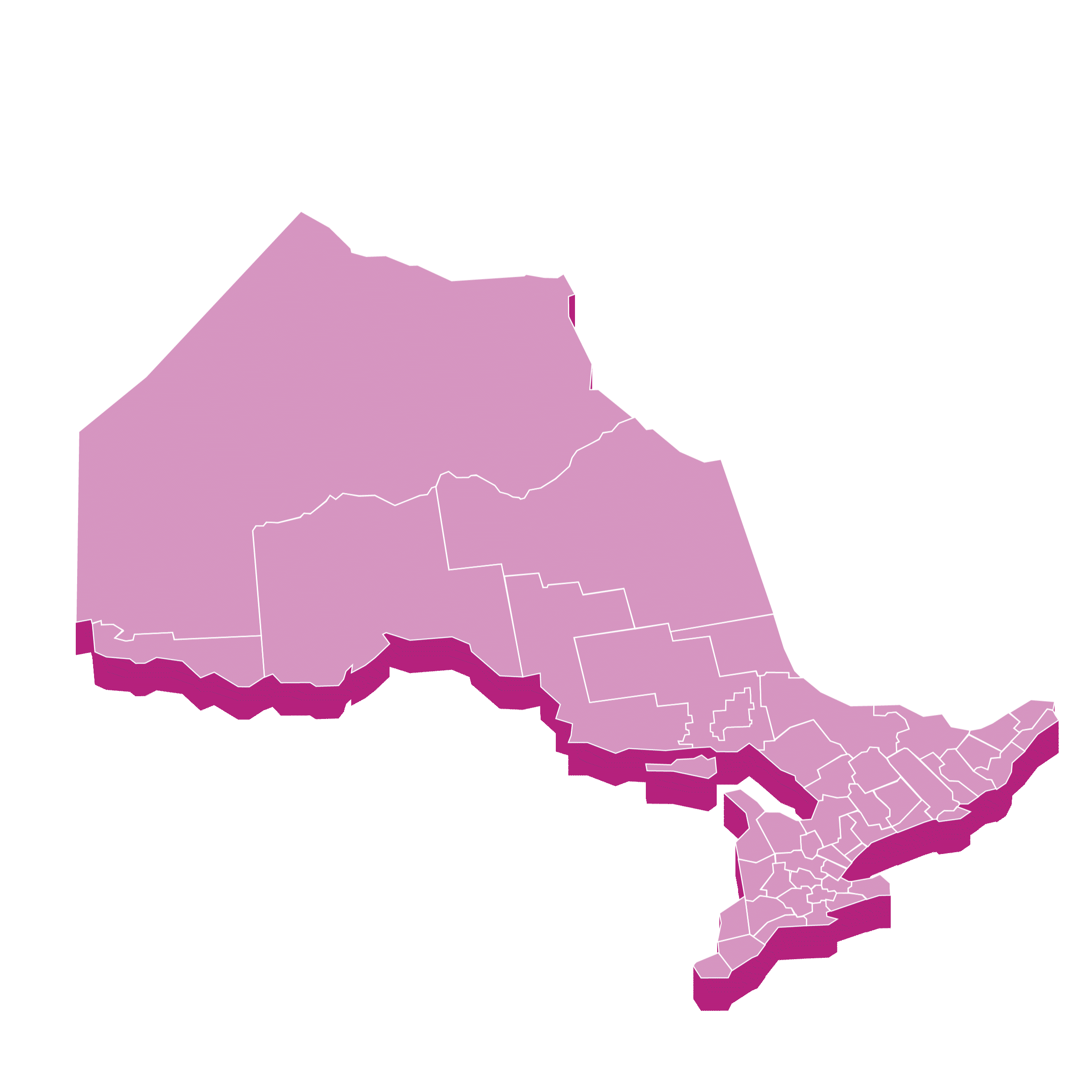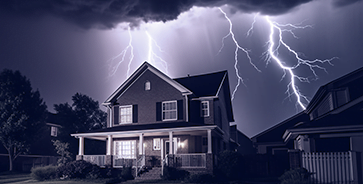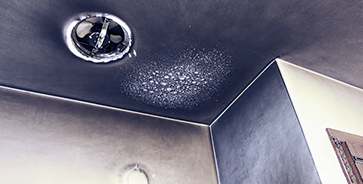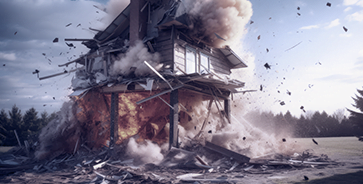Best Home Insurance Rates in Ontario
Your personal isure insurance broker understands your home insurance needs, and can help improve your coverage and discover new discounts.
We understand that your home is your castle, and has deep personal importance to you and your family. You have probably sunk more investment and sweat into it more than anything else in your life. When your home experiences issues, that stress translates to you as well. That’s why we work hard to make sure your home, your family, your lifestyle, and your mind and soul are at peace with the proper home insurance coverage.

Our Ontario home insurance brokers provide you fast, friendly and better insurance on your home, ensuring that you aren’t surprised by the fine print in policies or a short-term discount, only to see your rates climb in future. If your insurer tries that, we will find another insurer for you!
Let us do the shopping to find you the best Ontario home insurance rates and coverage in the marketplace!
From basic coverage to high-risk options, we’ll contact over 25 of the largest certified insurers and have them compete for your policy.

Our Ontario home insurance brokers provide you fast, friendly and better insurance on your home, ensuring that you aren’t surprised by the fine print in policies or a short-term discount, only to see your rates climb in future. If your insurer tries that, we will find another insurer for you!
Let us do the shopping to find you the best Ontario home insurance rates and coverage in the marketplace!
From basic coverage to high-risk options, we’ll contact over 25 of the largest certified insurers and have them compete for your policy.
What is Home Insurance?
Home insurance is what protects you, your family and your possessions from loss and liability. It also protects your mortgage lender, which is why it’s a requirement for securing a mortgage. Reputable mortgage lenders will not consider an offer to first-time home buyers without proof of homeowners insurance. The home insurance that you buy determines what coverage you will receive in the event of a claim.
The insurance policies usually start off with basic coverage:

Your house




Below are the main components of a home insurance policy:
Named Perils: Most home insurance policies cover named perils, such as fire, wind and theft.
Contents insurance: This is the portion of your policy that protects your belongings.
Liability: This part of your policy protects you in the event that someone is injured or killed on your property.
Loss of use: This portion of your policy protects you in the event that damage from one of your named perils prevents you from being able to live in your home while it is being repaired.
What Does Home Insurance Cover?
Homeowners have a lot on their plate, and finding the right insurance policy for their homes must be prioritized. Coverage is a must, and here at isure, we will ensure that you have the protection that you and your home require.
We care about our clients and want them to have a thorough understanding of their home insurance policies, so we will take the time to discuss exactly what is covered and will address any concerns you may have. Our team can help answer all of your questions and double-check that your policy reflects your needs.
House insurance is mandatory because it will provide you with financial protection in the event of damage to your home and belongings. Your coverage would help pay for repairs or replacements in your home, and it’s important to understand what your insurance will cover so that you don’t run into any surprises. Liability coverage, dwelling, property damage, and other additional coverages are available, discussed in more detail below. Additionally, you can purchase additional coverages if you require more protection.
Damage caused by fires, lightning strikes, windstorms, and hail are covered by your liability coverage, although not all-natural disasters are included in your policy. Dwelling protection would help cover the structure of your house, and liability coverage can be used in the event that someone not living in your home gets injured on your property. You should also note that home insurance is not just there to help cover damages to your home and may also provide coverage for your personal belongings inside your house. This means that if items were to be stolen or if a fire damages the furniture inside your home, you would be protected and/or your insurance policy may be able to help you pay for replacements.
According to the Insurance Bureau of Canada, the most common perils include:
Additional Home Insurance Coverage
The importance of home insurance cannot be denied, and here at isure, we can help you with general home insurance and additional home insurance coverage.
Standard coverage options include:
Dwelling, which will cover the physical building and structure you live in as well as additional structures and buildings on your property.
Contents, which will cover your belongings inside your home and
Personal liability, which will cover you in the event that someone is injured on your property.
These options are ideal as they will protect you and your home. However, they may not be enough, and additional coverage may be necessary.


Business insurance coverage
Business coverage, for example, is necessary for anyone who runs their own business out of their home. Why? Because your standard home insurance policy will not cover business-related situations. If damage were to occur to your house due to your business operations, you may not be covered.

Equipment breakdown insurance coverage
You should also consider equipment breakdown insurance, which will cover you in the event of a sudden or unexpected equipment failure in your home. Your air conditioning unit, furnace, kitchen appliances, or security system may be covered under this policy. We can discuss this type of coverage in more detail if you want to add it to your policy.

Sewer backup insurance
It is also recommended that you add sewer backup insurance to your policy, as this can be a nightmare to deal with. Not only will a sewer backup cause a lot of damage, it will also be expensive to fix. So, the addition of this type of coverage is worth considering. The same is true for above-ground water coverage, which will protect you against sudden and accidental water damage caused by rain, snow or melting ice entering your roof, windows or doors.

Personal Valuables Coverage
isure can also provide you with personal valuables’ coverage, which is ideal for those who have valuables that exceed the limits set out in your policy. We understand how important your personal treasures are, and we’ll help you protect the most valuable items in your home. This can include wine, jewellery and works of art. We can increase the amount of insurance for a particular item of high value.
Our reputable isure brokers will ensure you get the best home insurance policy for your needs and make professional recommendations based on your requirements. We have years of experience in this field and genuinely care about our clients. Our team understands that every client has specific needs, so we take the time to understand your situation and create a plan based on this information.
If you want peace of mind knowing your home is completely protected, contact us today at 1-877-606-4098 to discuss your insurance policy!
What isn’t covered by your Home Insurance Policy?
Home insurance is a must, and while it’s important to understand what your policy covers, it’s equally as important to be aware of the perils that your insurance policy will not cover. Knowing this information will prevent any unwanted surprises, and the experts at isure can provide you with clarification.
It’s important that our clients feel comfortable with the information they’re being presented with, so we will take the time to discuss the areas that are not covered and answer as many questions as you have. We will provide you with every detail to have a thorough understanding of your policy and make changes based on your needs and requests.
Things that are not Covered
Vacant properties, for example, are not covered by house insurance, and your policy would not be able to help if damage occurs on a property that has been vacant for a certain number of days. You need to understand that vacant is not the same as unoccupied, and applies whenever there’s no furniture on the property. For example, if your family is going on a long holiday and something were to happen to your home while you were absent, your policy would still apply in this case.
Failure to maintain your home is another area that is not covered because poor upkeep is at the fault of the homeowner. For example, if you fail to fix broken appliances and make a claim for water damage, your policy will not cover damages.
Certain valuables will not be covered, and there may be a limit for any one item in terms of what you can claim. This means you would not be able to claim any amount you want for stolen cash or art, as most insurance policies have a maximum amount that homeowners are allowed to claim. If you have a precious art or extensive jewelry collection, you can purchase higher coverage limits.
Home sharing and wear-and-tear are also not covered. Our brokers at isure would be happy to provide you with more information regarding what your policy does and does not cover.
What are the categories of home insurance?
When you shop for insurance for your home, you may come across three different types of home insurance policies, although they can be updated with custom perils and options.

Standard or Basic
This type of home insurance policy will be different, depending on where you live and the insurer you buy it from. But it will generally cover damage that occurs from the weather (hail,wind,lightning) or fire. The perils that are covered in a standard or basic policy will be listed clearly and will only cover those specific perils.

Broad
As the name suggests, this type of home insurance provides broad coverage for your home. This coverage will include everything in the standard insurance policy, as well as other perils such as vandalism and theft. It can also cover unpredictable events like a burst or frozen pipes. Be sure to check with your isure broker to see what perils are (and aren’t) covered in your policy.

Comprehensive
This is the most robust type of home insurance policy coverage because it covers most perils. However, there may be some that it won’t cover. A comprehensive home insurance policy is recommended for those who want almost any damage to their home to be covered.

Is Homeowners Insurance necessary?
The answer to the question, ‘is home insurance mandatory?’, is somewhat complicated. In short, coverage depends on your individual circumstances. Unlike auto insurance, home insurance has not been made mandatory by the government. In Ontario, if you own your home and have no mortage, you don’t legally need to have homeowners insurance.
Why do you need proof of home
insurance to get a mortgage?
However, if you’re asking “Is home insurance a requirement if I need a mortgage?”, then you’ll get a different answer. If you own the property and have a mortgage on it, your bank or lender will require that you hold an active home insurance policy and name them on that policy. When someone lends you money to purchase a property, they count on you being able to pay them back. By loaning you the money to purchase a home, (i.e. a mortgage,) they now have an investment in your property. Because of this, your mortgage lender wants to make sure your property has full coverage in the event of damage or loss. Your lender will require insurance because of the risks associated with loaning such large amounts of money to you. Simply put, they are protecting their investment.
Most banks or mortgage holders also want to make sure that you’re financially able to continue paying off your mortgage. This is regardless of whether your property is destroyed due to fire or inclement weather. Your mortgage doesn’t disappear with the loss of your property, and you’ll still be required to pay your mortgage off. Therefore, your lender is protecting their investment by requiring insurance on a mortgage, and they’re also protecting you from the financial hardship that will result from defaulting on your mortgage if your home is destroyed.
FYI: Condo corporations and lenders may require condo unit owners, to show proof of insurance for their unit before they can move in.


Why do you need proof of home
insurance to get a mortgage?
However, if you’re asking “Is home insurance a requirement if I need a mortgage?”, then you’ll get a different answer. If you own the property and have a mortgage on it, your bank or lender will require that you hold an active home insurance policy and name them on that policy. When someone lends you money to purchase a property, they count on you being able to pay them back. By loaning you the money to purchase a home, (i.e. a mortgage,) they now have an investment in your property. Because of this, your mortgage lender wants to make sure your property has full coverage in the event of damage or loss. Your lender will require insurance because of the risks associated with loaning such large amounts of money to you. Simply put, they are protecting their investment.
Most banks or mortgage holders also want to make sure that you’re financially able to continue paying off your mortgage. This is regardless of whether your property is destroyed due to fire or inclement weather. Your mortgage doesn’t disappear with the loss of your property, and you’ll still be required to pay your mortgage off. Therefore, your lender is protecting their investment by requiring insurance on a mortgage, and they’re also protecting you from the financial hardship that will result from defaulting on your mortgage if your home is destroyed.
FYI: Condo corporations and lenders may require condo unit owners, to show proof of insurance for their unit before they can move in.

How much does home insurance cost in Ontario?
Home insurance costs vary, depending on several factors. These may include where you live and the type of home you own. The size, age, and value of your property are also important and can impact how much it costs to insure your house or condo.
For example, suppose you live in an area prone to severe weather conditions, like hail storms or thunderstorms. If you are, chances are good that your hazard deductible will be higher than someone who lives eight kilometers away from a similar area with milder climate conditions. In this instance, the higher risk associated with living in an area that has a history of severe weather will make it more expensive for you, as far as insuring goes (and vice versa).
How Is Home Insurance Calculated?
Much like with your auto insurance, there is a lot that goes into the amount you pay for your home insurance. As an example, a person living in Nepean will most likely pay less than somebody living in Mississauga.
Here is a quick breakdown of what generally goes into determining the cost of your homeowner’s insurance:

Your home’s characteristics
The size, age and condition of your home will play a big role in determining your house insurance rate. Big houses will generally be more expensive than smaller homes, and newly-renovated homes will have a better rate than a home that is outdated.

Where your home is located
As mentioned above, the city where you live will play a big role in determining your home insurance rate, but the area surrounding your home will also affect the price. If you live near a fire hydrant or if you live in a safe neighbourhood, your insurance rate may be lower.

How your home was constructed
If your home was built using high-quality and expensive materials, then the insurance will be more expensive as those materials will need to be replaced in the case of irreparable damage.
factors that influence your home insurance costs
You can reduce your home insurance costs by understanding the factors influencing them. Here are six things to keep in mind:
Location
The more remote you live from services, the more expensive your home insurance will be. An example would be living far away from a fire station.
Type of home
The older and larger your house is, the higher its value, which also affects how much you will pay for coverage.
Home age
Insurance companies tend to charge less for homes built in recent years because they’re typically safer than older structures.
Home Size
Larger homes require more material and labour for repairs, which can increase the overall cost of repair or replacement if something happens. So, it makes sense to be charged higher premiums due to a greater likelihood of needing repairs or replacements.
Nearby firehalls or hydrants
Home and possessions are far less susceptible to severe damage and losses if your home is located near a firehall or fire hydrant. Your insurance provider takes this into consideration, and you can enjoy a lower premium if you live within eight kilometers of a fire station or 300 metres from a hydrant.
Credit history
Most financial matters involve a credit check to assess your history of paying bills and services. When it comes to your home insurance premiums, your health and previous credit history will be factored into the decision-making process to determine where you can save.
Pets
Having pets can affect home insurance premiums because certain animals or breeds are considered liabilities by insurers. These animals might pose higher risks for property damage or injury, leading to increased insurance premiums to cover potential claims.
Smoking
Being a smoker can affect home insurance premiums because insurers require disclosure due to the increased risk of fire in your home. This heightened risk leads insurers to potentially raise premiums to cover the greater likelihood of fire-related claims.
Basement
Having a basement can lead to higher home insurance premiums because basements have a higher chance of flooding. Finished basements increase costs further, as there’s more to cover, leading insurers to raise premiums to account for the added risk and coverage needs.
Home security measures
Having home security measures in place can help reduce home insurance costs because these devices indicate to insurers that your home is less likely to be targeted for break-ins or robberies.
Rebuilding costs
Home insurance costs are determined by your home’s replacement cost, which includes the cost of repairs and materials needed to rebuild. Insurers calculate premiums based on these expenses to ensure adequate coverage for rebuilding in case of damage or loss.
FAQ’s
ABOUT HOME INSURANCE IN ONTARIO
Do I need to purchase home insurance?
In Ontario, it is not required to get home insurance, but it is essential if you want to secure a mortgage (and to protect your investment!)
How do I save on Home Insurance?
We’ll explore the different steps you can take to save on home insurance in Ontario. Once we start shopping the market, you will notice that our company takes pride in providing the best rates out there. Our knowledgeable brokers will work to offer you the lowest quotes, and our policies will provide you with the coverage that you need.
Another option you can consider is to increase your deductible, which is essentially the amount you agree to pay towards the total amount of your insurance claim. Most home insurance policies carry a deductible, and it may be possible for you to reduce your premium by increasing it. The installation of a smoke detector, alarm system, carbon monoxide detector and deadbolt locks can further reduce your insurance premium, so let’s discuss improved security in more detail. We also recommend that customers pay their premiums annually rather than monthly, as this can help you save even more!
isure recommends that you combine home and auto insurance coverage with the same company to further your saving potential. There are discounts available for bundling insurance policies, and we’re happy to provide you with more information to check if you’re eligible to bundle.
Will my home insurance cover claims for my home-based business?
If you work from home, it is important to understand that your home insurance will not cover claims that are related to your business – the experts at isure can provide you with more information. We will highlight what your home insurance does and does not cover so that you are aware of the coverage you have and the type of coverage you will need.
Home-based business insurance is a must for those who run their business from home, and we will gladly provide you with more information. You should never assume that your home insurance will cover claims associated with your home business because that’s simply not the case, and this assumption can lead to big headaches and expensive consequences in the event of a claim. Our team will prevent this from happening by discussing your options and providing you with professional recommendations.
If you have a home-based business, you will need a specific type of insurance to protect yourself and your business. We will help you select the best coverage for your business needs and will discuss general liability insurance and business property insurance, both of which are very common. These would help with costs associated with damage to the business property or with a lawsuit if a client were to be injured. Additionally, these types of coverage would help cover the costs of repairs if the business owner’s home were to become damaged.
We will explain why work-related activities that take place in your home are not automatically covered by your existing home insurance policy and will make sure you have the coverage and protection you need. If you are looking for commercial insurance or have questions regarding home-based business insurance, contact isure today!
What is the minimum amount of Home Insurance coverage for a Mortgage?
According to Economical.com, your mortgage lender will require that your home at least be protected against the following perils, also known as Named Perils coverage. These are typically included in most basic home insurance policies:
- Theft and vandalism
- Falling objects
- Fire and lightning
- Hail and wind damage
- Frozen pipes
- Riots or civil unrest
- Smoke
- Explosion
- Vehicles
FYI: Your requirements may not stop there. Depending on where you live, your lender may also require coverage for other perils, like windstorms, sewer backup, overland water, or earthquakes. Be sure to speak with one of our isure representatives about your coverage needs.
What if I live in a condo? How does my home insurance work?
In most cases, condo insurance will focus on the contents and improvements made to the standard unit because condo corporations have their own policy, which will cover common areas. You can insure your unit and your possessions against water, theft or fire to help protect yourself from liability claims. You can also receive reasonable living expenses (up to the limits of your policy) if you cannot live in your unit because of repairs being made to the building.
Condo owners will receive all the information they need from our brokers, and we will ensure you have the proper condo insurance coverage that matches your needs. We will discuss additional coverage options if you are interested in more protection and will make professional recommendations regarding the type of coverage condo owners need.
What can I do to lower my home insurance costs?
We always aim to provide our clients with the lowest rates possible, and will provide you with professional tips to help lower your home insurance costs. Bundling your home and auto insurance is one way to reduce costs, and installing a security alarm system can also help in this regard. Choosing a higher deductible can also help lower your home insurance costs. Here’s our full list of home insurance discounts!
Are there other ways to save money on my home insurance policy?
What affects Home Insurance?
The invention of home insurance occurred after a tragic weekend of fires that spread across London in the U.K. In 1752, one of America’s founding fathers created the first fire insurance policy in the United States. Canada’s founding father, Sir John A. Macdonald, was also President of the Dominion of Canada General Insurance Company, which was one of the first companies to start selling home insurance in Canada in 1887.
These days, over one hundred active home insurance companies (that are private or public) are offering policies in Canada.
Home insurance is actually not an obligation by law in Canada. However, since the buying of a home is usually accompanied by a mortgage from a lender, the lender will typically require protection for their investment, and in these cases, home insurance will then be a requirement.
However, if you do own a property, then it’s smart to have some level of home insurance to protect yourself from uncontrollable risks, like water damage, theft or a fire. Home insurance is for homeowners and condo owners, as well as tenants who rent their living space. Keep in mind that the costs associated with home insurance are subject to fluctuations for many reasons, including the type of home insurance and location, as some places could be at a higher risk for flooding or earthquakes.
Factors that will impact your home insurance premiums
There are several different factors that could affect what you will pay for home insurance. Your insurance provider will need to know the details of your home, including: age, the cost to repair or replace your home, and the basic construction details for the interior workings and exterior features. These details will help your isure broker accurately assess risk and determine the probability of something going wrong before they can give you an accurate quote. The more perceived risks there are for your property, the more expensive potential repairs would be, and therefore, the more your home insurance premium will cost.
Two specific factors that will impact your home insurance premiums
1. Property type
The type of dwelling you live in will be evaluated differently since they each come with different risks. A house has a roof, whereas a single condo unit will be in a larger building whose roof is covered by maintenance fees that are paid collectively by all residents.
2. Credit score
Insurers are allowed to take your credit score to help them determine your premium – a majority of provinces use it. Most insurance companies will tell you there is a direct statistical correlation between credit history and increased chances of risk. It is important to note that your credit score will not negatively impact your insurance premium, but those with high-quality credit scores can save more on their premium.
What is the difference between Mortgage insurance and Homeowners insurance?
On the other hand, mortgage insurance protects the mortgage lenders if the borrower cannot repay their mortgage. When you take out a loan to buy a home, your bank or lender is taking a risk by assuming that you will honour the terms of your loan and make monthly mortgage payments. Homebuyers with a steady income, good credit history, and low debt-to-income ratio will be considered low-risk borrowers. A 20% or higher down payment on the property’s sale price will also place you in a low-risk borrower category.
Many borrowers, however, do not have this amount to put down to purchase their property, and the lender will view this as a concern, and that is when private mortgage insurance will be necessary. This would protect the bank or lender if you fail to make your payments and would provide them with a guarantee that their risk will be covered so that they can lend you the money with peace of mind.
Does my type of heating system affect the cost of home insurance?
Yes, the type of heating system you have will affect the cost of your home insurance. Homes with electric and natural gas will cost less to insure than homes with oil or wood furnaces because oil can leak, which is expensive and difficult to fix. Wood furnaces increase the risk of house fires, and the type of heating system you have is factored in when calculating the cost of your home insurance policy.
What if I rent? Does my home insurance work differently?
Yes! Tenant insurance is made for people who rent or lease their home or apartment from a landlord, and premiums are usually lower than home insurance. Renters insurance will cover the contents of your home in the event of theft or damage. It will provide you with liability protection and pay for living expenses up to the limits stated in your policy if you cannot live in your unit due to a named peril.
What can I do to lower my home insurance costs?
We always aim to provide our clients with the lowest rates possible, and will provide you with professional tips to help lower your home insurance costs. Bundling your home and auto insurance is one way to reduce costs, and installing a security alarm system can also help in this regard. Choosing a higher deductible can also help lower your home insurance costs. Here’s our full list of home insurance discounts!
isure Home Insurance Means

Control Over Your Policy
Register your policy, and you’ll be able to manage, change and update it, quickly and efficiently.

Personalized Attention
Your personal, dedicated and online isure broker is there when you need them. We’re a phone call, live chat, or email away from helping you. We’ll even call pre-emptively when disaster strikes your neighborhoods!

Insight and Attention
Let us do the shopping for you so that we can find the best car insurance rates and coverage that the market has to offer! We compare over 25 of the largest certified insurers, making them compete on rates so you can receive the auto policy you want at the best price.

iSavings
Between all our isure approved insurers, we boast one on the longest list of auto and car insurance discounts of any broker online, and our competitive bidding saves you money with no sacrifice on coverage. We’ll also tell you how to reduce your premiums by taking safeguards.

Responsive Claims
No problem. Claims response is open 24 hours a day, 7 days a week to get your claim started immediately!

Guilt-free Quoting Process
isure Optional Add-Ons
Customize your Home Insurance to suit your unique needs and preferences with additional add-ons.
Overland Water
Overland water coverage protects your home from property damage caused by flooding from nearby rivers, lakes, or snow thawing, ensuring financial assistance for repairs and replacements after such events.

Sewer back-up
Sewer backup coverage protects your home from property damage caused by overflowing sewer pipes, ensuring financial assistance for repairs and replacements to your plumbing and any affected areas of your home.
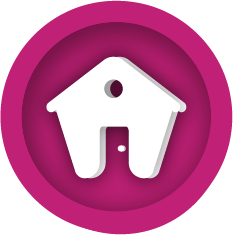
Earthquake
This protects your home from property damage caused by earthquakes, providing financial assistance for repairs. It’s ideal for homes in earthquake-prone areas.

Identity theft
This coverage protects you from the cost of replacing important documents lost or stolen during a disaster, ensuring financial assistance for recovering crucial personal information and reducing potential losses.

Home sharing and rentals
Home sharing and rental coverage is essential if you rent out part of your home, providing additional property and liability coverage to protect you from damages and liabilities related to the tenant.

Lock replacement or locksmith coverage
This coverage is useful if you are locked out, if your lock breaks, or for safety reasons. It provides financial assistance for locksmith services and new locks, ensuring your home’s security and quick access in emergencies.
OUR LATEST iNEWS BLOG
Electrical Damage: Is it Covered by Your Policy?
Most home insurance policies in Ontario may cover electrical damage, but only to a certain extent. Each policy and provider is different. However, there are some instances in which electrical damage would be covered. So, in this article, let’s break down the cases in which home insurance would cover electrical damage.
Car Insurance and Travel: How to Stay Protected Abroad
Before you embark on your next great summer adventure, reviewing your auto policy is wise decision. To ensure you have the protection you need, let’s review some helpful tips for car insurance when traveling out of province and to the U.S.
Parking lot accidents: Can you make a claim?
Parking lot accidents are quite common. Due to this, they should be treated similarly to how an accident on the road would be treated.






